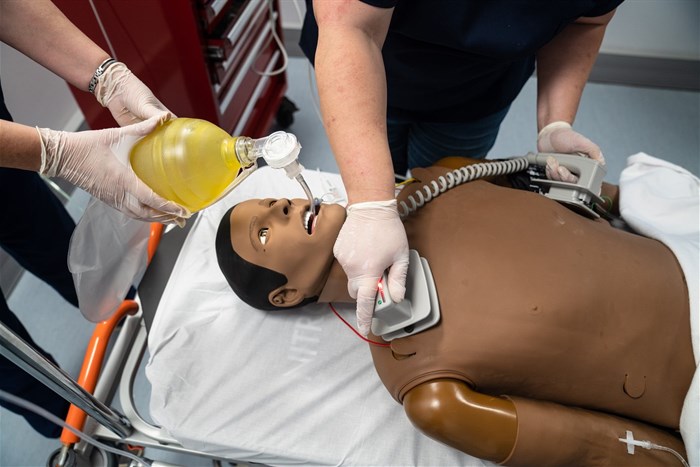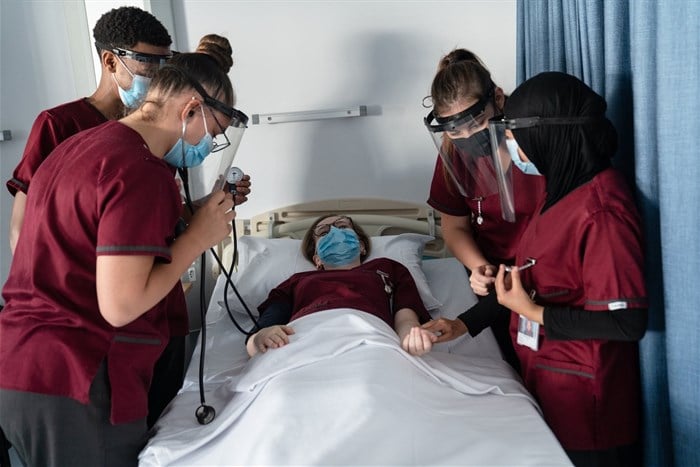
The new facility at SU’s Faculty of Medicine and Health Sciences (FMHS) features simulation rooms with state-of-the-art medical models and manikins; a simulated hospital ward and consultation rooms; and modern teaching venues equipped with high-tech video technology to assist students in developing clinical skills critical to the healthcare professions.
“In our mission statement the FMHS commits itself to providing students with a transformative learning experience. This ultramodern facility helps achieve this objective by supporting the training of world-class health care practitioners equipped to serve our communities,” comments Prof Jimmy Volmink, Dean of the FMHS.
Health professionals require a number of practical skills, known as clinical skills. These range from patient examination and drawing blood, to effectively communicating with patients and their loved ones. The SCSU provides a safe environment where these clinical skills can be taught, practiced and assessed before students enter hospitals or clinics where they have to engage with real patients. A unique feature is its interprofessional design that offers training to students from all the FMHS’ six undergraduate programmes.
“Simulation-based education is a key feature of most of our undergraduate, and many of our postgraduate programmes,” explains Prof Susan van Schalkwyk, director of the Centre for Health Professions Education (CHPE). “Simulation has a long history in health professions education, but in recent years has come to the fore to enhance the training of healthcare professionals in a controlled learning environment.”

The new venue is an extension of the FMHS’ existing Clinical Skills Laboratory that was established in 2000, and is still in use. “The increased number of students in our programmes, and greater awareness of patient safety led to the need for more space and equipment for clinical simulation,” explains Dr Elize Archer, head of the SCSU.
“This new space is built to address the needs of the 21st century,” says Archer. Realistic simulations of medical scenarios can be recreated using high-fidelity medical manikins that can present with symptoms, fluctuating vital signs and even react to treatment. These simulators are used to develop both technical and non-technical skills, such as teamwork and communication. Room cameras with video streaming capabilities enable the scenarios to be followed and assessed virtually, facilitating engagement, reflection and debriefing with students and experts anywhere in the world.
“One of my favourite things about the SCSU is having the opportunity to practice life-saving emergency procedures in an environment where we won’t compromise ourselves or the patients,” says Azhar Nadkar, a final-year medical student with the FMHS.
“Overall, the new technological affordances of this area significantly extend the borders in terms of how clinical skills are taught,” says Archer.
All teaching and learning activities at the SCSU are underpinned by established educational practices to best equip health sciences students with an integrated set of technical and non-technical skills to prepare them for the clinical environment.